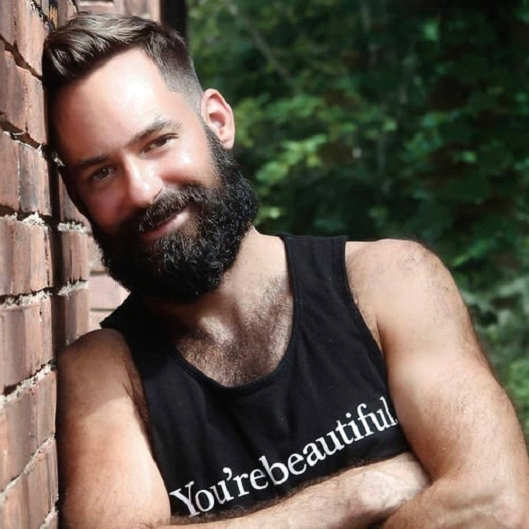Profiles in Recovery

Corey Hudson
“Every heart has a story to tell.” That’s the refrain of a growing photojournalism movement, Hearts of Strangers, founded by Hudson to inspire empathy and courage. He interviews strangers about the hardships in their lives – and documents the resilience of the human spirit.
The project has been a big part of Hudson’s own recovery from drug addiction and crippling, suicidal depression.
“It was in the psychiatric ward that I began . . . to acknowledge the wounds and trauma, and learn to love and care for myself through that process — without shame, guilt or fear,” Hudson says. “I believe that anything that enhances your connection and vibration with yourself, your environment and with all beings is a form of therapy we should utilize.”
PreviousNextDay Job:
Recovery support specialist, author/photographer, creator of
“Hearts of Strangers.” Mental health advocate and public speaker.
What I lost to addiction:
I lost the most important connection of all — the connection with myself. Because of that, I was not able to sustain healthy relationships with my family, friends, romantic partners or employers. The amount of money and basic necessities I sacrificed in order to continually escape the pain left me without a home and the means to care for myself.
At my worst, I was:
Attempting to take my own life. I could have died many times simply from the risks I was taking while being high, intoxicated or just so depressed that I no longer cared what happened to me.
Favorite recovery quote:
“When I healed the trauma, the addictions went away.”
What I learned about myself:
I learned that I am enough, I do enough, I have enough, and that my worth and value is not based on what others see, but how I see myself. The more you love yourself unconditionally, the more unconditional the other relationship in your life will become. You don’t have to convince anyone to love you – you are worthy of love and belonging.
Best advice for newbies:
If you want your life to change, you must not fear asking for or accepting help. There is no instant relief from pain and suffering, but with healthier coping skills, you can and will heal. It’s going to take just as many choices to head in a new direction as it took to get to where you find yourself today.
What I value most in recovery:
My consciousness.
What worked for me:
I learned that by discarding the masks we wear to disguise the pain we experience as human beings, we can truly be seen and loved unconditionally for who we are — regardless of where we are.
Once I began loving myself and making choices that honored and reflected that relationship, my life and exterior relationships began to change for the better. Some other useful tools have been creative outlets, yoga, meditation, nutrition, exercise, nature, children, animals, audio journaling, talk therapy and inspiring books and TedTalks.
Advice to my younger self:
Don’t wait for permission to be you.
I get inspired by:
The resilience of ordinary human beings who are courageously rebuilding their lives despite the magnitude of damage they experience, the lack of resources they have, and the degree of fear they experience.
On finding purpose:
Everything we experience is useful. Use your gifts, talents and abilities to recycle them into something you can create right now, where you are, with what you have. Do it with the intention of helping others in a way that you may have needed or wanted when you were struggling in silence and fear.
This not only gives our lives purpose and meaning, but creates mutual healing.
Shed the Stigma:
If you’re a person in long-term recovery who wants to share your
insights, please contact us at [email protected].

